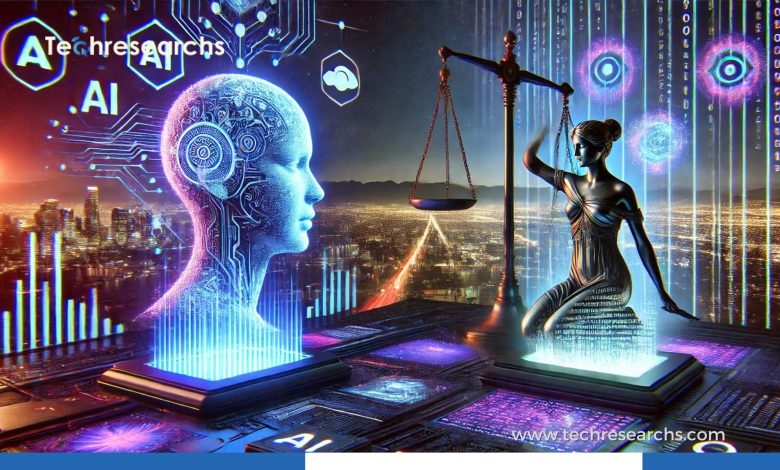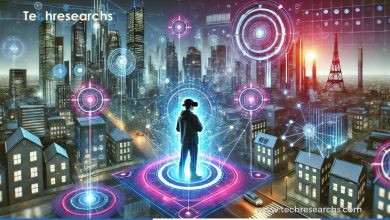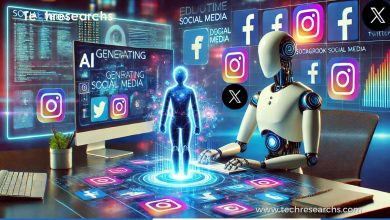Generative AI Applications and Ethical Considerations: What You Need to Know

Generative AI applications are revolutionizing various industries, enabling machines to create text, images, videos, and even music. While these advancements bring efficiency and innovation, they also pose ethical concerns related to bias, privacy, misinformation, and accountability. This article explores the implications of Generative AI applications and discusses how we can address these challenges responsibly.
Understanding Generative AI Applications
Generative AI refers to artificial intelligence models designed to generate new content based on patterns in existing data. Some of the most common Generative AI applications include:
- Content Generation: AI-powered tools like ChatGPT create articles, blogs, and reports.
- Image Synthesis: AI tools such as DALL·E and MidJourney generate realistic visuals and artwork.
- Video Creation: AI-powered video synthesis tools help create deepfake videos and animations.
- Code Generation: AI-assisted coding platforms like GitHub Copilot help developers write and debug code efficiently.
- Music Composition: AI-based tools compose original songs, harmonies, and soundtracks.
- Medical Applications: AI aids in drug discovery, medical imaging, and personalized treatment plans.
While these applications enhance productivity and creativity, ethical risks remain a significant concern.
Ethical Considerations in Generative AI Applications
1. Bias in AI Models
Generative AI applications are trained on large datasets, which can include biases. As a result, AI-generated content may inadvertently reflect societal prejudices, leading to:
- Discriminatory hiring practices in AI-driven recruitment tools.
- Racial and gender biases in AI-generated content.
- Unfair financial lending decisions due to biased training data.
- Reinforcement of stereotypes in AI-generated media.
To mitigate these risks, developers must ensure that training data is diverse and undergo regular audits.
2. Privacy and Data Security
AI models require vast amounts of data, raising concerns about privacy and security. Key issues include:
- Unauthorized use of personal and sensitive data.
- AI-generated deepfakes used for identity fraud.
- Data leaks and breaches exposing private user information.
To address these challenges, organizations must implement robust data protection measures, such as encryption, anonymization, and transparency in data collection.
3. Misinformation and Fake Content
Generative AI can create highly realistic yet false content, leading to:
- The spread of misinformation and fake news.
- Manipulation in political campaigns and elections.
- Fraudulent content in advertising and media.
Combating this requires AI fact-checking mechanisms, digital watermarking, and content verification strategies.
4. Intellectual Property and Copyright Issues
Generative AI can replicate existing content, resulting in legal challenges such as:
- AI-generated images and videos infringing on original creators’ rights.
- Automated content creation leading to plagiarism concerns.
- AI-generated music and literature causing ownership disputes.
Policymakers must establish legal frameworks that define ownership and fair usage rights for AI-generated content.
5. Accountability and Transparency
Determining who is responsible for AI-generated content is a complex issue. Ethical AI development should include:
- Clear disclosure of AI-generated content.
- Guidelines for responsible AI deployment.
- Regulatory policies ensuring accountability.
Ensuring transparency in AI decision-making helps build trust and reduces the risks of misuse.
How to Ensure Ethical AI Development
To address these concerns, organizations and developers must adopt the following best practices:
- Bias Mitigation: Conduct regular audits and use diverse datasets.
- Privacy Protection: Implement strong encryption and anonymization techniques.
- Transparency: Clearly label AI-generated content.
- Regulation Compliance: Adhere to global AI governance frameworks.
- Ethical AI Training: Educate developers and users on responsible AI use.
Comparison of Ethical Risks in AI Applications
| Ethical Concern | Impact | Solution |
|---|---|---|
| Bias in AI | Discriminatory hiring, misinformation | Regular audits, diverse datasets |
| Privacy Issues | Unauthorized data usage | Strong encryption, AI transparency |
| Fake Content | Spread of misinformation | AI fact-checking, content verification |
| Copyright Issues | Legal conflicts in content ownership | Defined AI content regulations |
| Accountability | Difficulty in determining responsibility | Transparent AI policies and guidelines |
Real-World Examples of Ethical Issues in AI
1. Deepfake Technology
Deepfake videos have been used to create misleading political campaigns, spread misinformation, and even commit fraud. Without proper regulations, this technology can be misused to deceive people and harm reputations.
2. AI in Hiring
Some AI-driven hiring tools have been found to favor certain demographics over others, leading to biased recruitment decisions. This highlights the need for fairness and inclusivity in AI model training.
3. AI-Generated Art and Copyright Conflicts
Artists have raised concerns about AI-generated artwork that closely resembles their own. Many have questioned whether AI-created works should be protected under copyright laws or considered as public domain.
FAQs
1. How do Generative AI applications impact the job market?
Generative AI enhances productivity but may replace certain job roles, necessitating workforce reskilling and adaptation.
2. Can AI-generated content be legally owned?
Legal frameworks are still evolving, but AI-generated content ownership remains a gray area in intellectual property law.
3. How can businesses use Generative AI responsibly?
By implementing ethical AI practices, conducting regular audits, and ensuring transparency in AI-generated content.
4. Are Generative AI applications a threat to cybersecurity?
Yes, they can be exploited for phishing scams, deepfake fraud, and cyberattacks, highlighting the need for enhanced security measures.
5. What regulations govern AI-generated content?
Policies vary globally, but initiatives like the EU AI Act and AI transparency regulations aim to govern ethical AI use.
Generative AI applications offer groundbreaking opportunities across various industries, but they also present ethical challenges that must be addressed. Ensuring transparency, reducing bias, strengthening data privacy, and establishing legal guidelines will help us navigate the ethical complexities of AI. By adopting responsible AI practices, we can harness the potential of Generative AI while minimizing risks and maximizing benefits for society.
More TechResearch’s Insights and News
Best AI in the World: The Most Powerful AI Systems Today
Alexa AI: The Evolution and Future of Smart Voice Assistants



